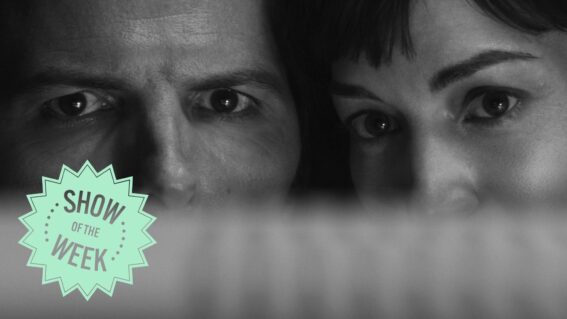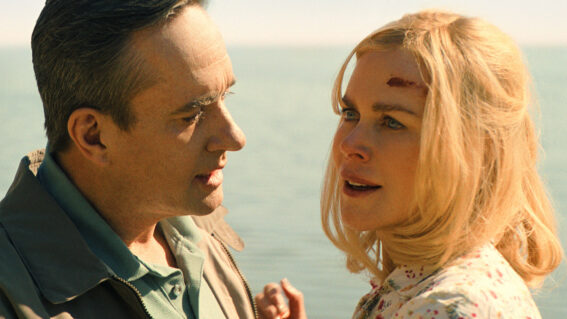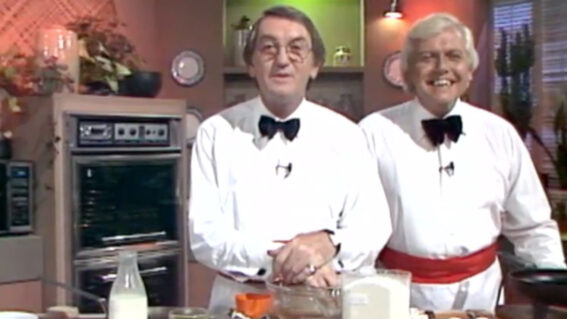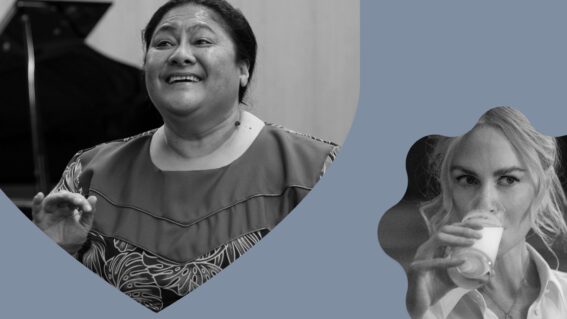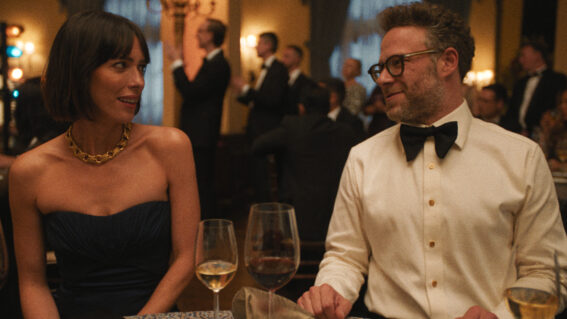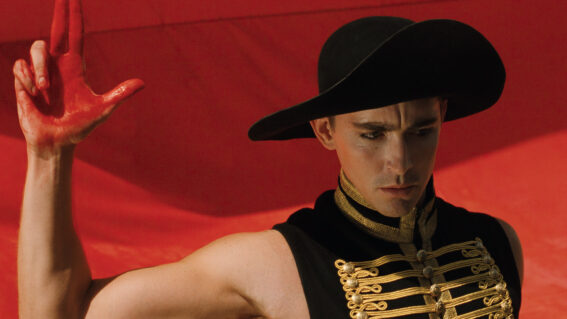Stepping into The Matrix with Sir Dave Dobbyn
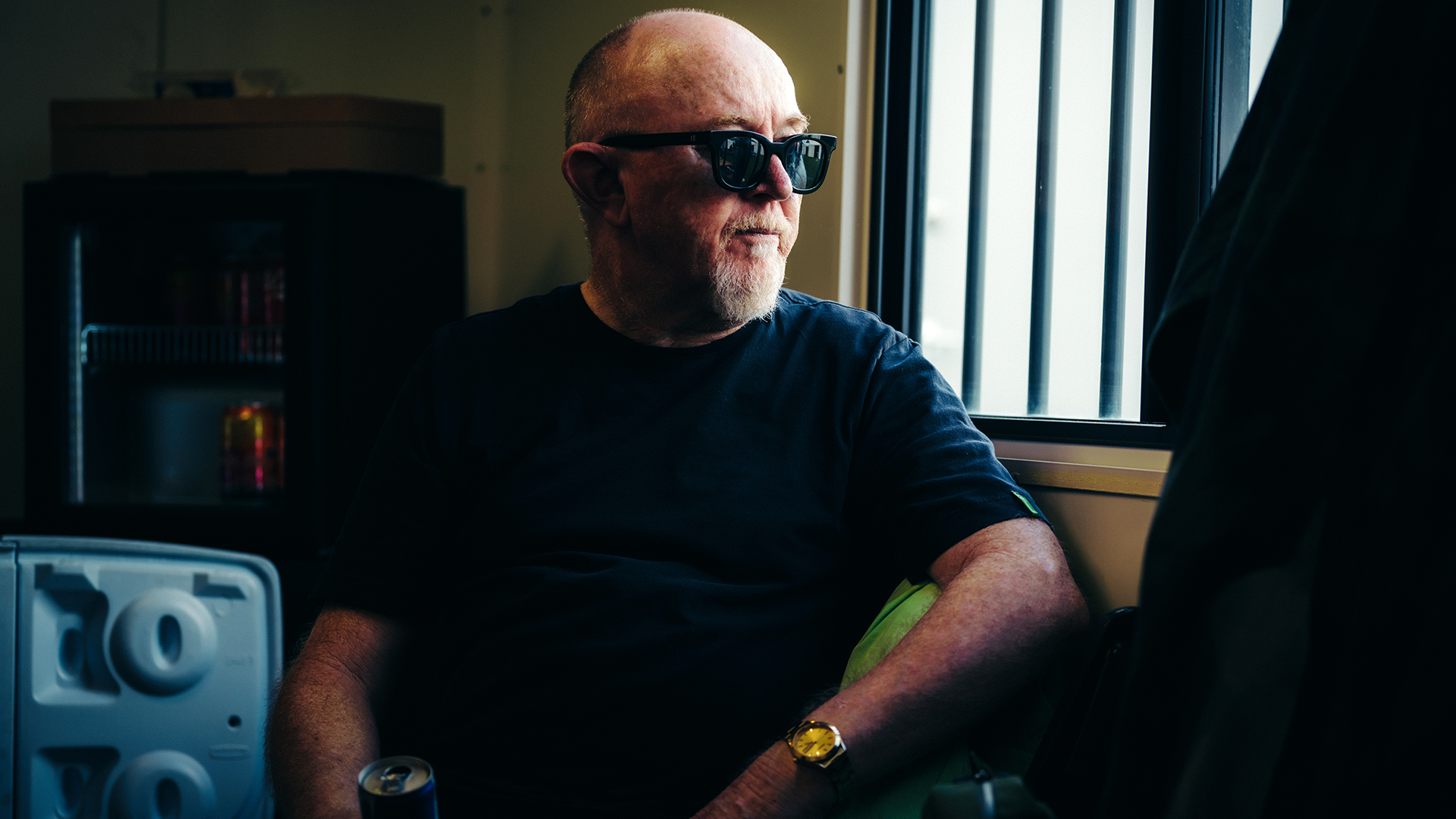
As we enjoy our summer, Flicks editor Steve Newall shares some of his favourite reads from 2024.
After finding out about the musical legend’s love of The Matrix, Steve Newall sits down with Sir Dave Dobbyn to chat about one of his favourite films as it turns 25.
Sir Dave Dobbyn photo by Tom Grut
I’m not sure exactly when—or how—this happened. Peter Urlich and Phoebe Falconer are hosting a music quiz at the Grey Lynn Returned Services Club, and outside I find myself talking to Sir Dave Dobbyn. Listening, really, as he tells me about his favourite movie and how he likes to watch it—with old wooden speakers cranked up “for maximum immersion”.
I could relate. I mean, I think The Matrix is pretty cool, too. But it’s not necessarily the film pick you’d expect from a Knight Companion of the New Zealand Order of Merit, let alone an icon of Aotearoa whose formidable musical output for decades upon decades doesn’t exactly come covered in sci-fi head-fuck fingerprints. Or dressed in black PVC.
The moment stayed with me, and as the 25th anniversary of the landmark sci-fi blockbuster rolls around some years later, I find myself sitting in Dobbyn’s home studio for a very enjoyable chat, buzzing out about The Matrix.
“It just smacked you in the face,” Dobbyn says. “It was amazing. Everything about it was revolutionary.” At its core, of course, it was a classic story: “We need a hero, we need a saviour. And then somebody’s the saviour and they’ve got to save the world… And that’s what I loved about it. Then, you know, all the imagery, and so many things to think about. So many subtexts, I suppose.”
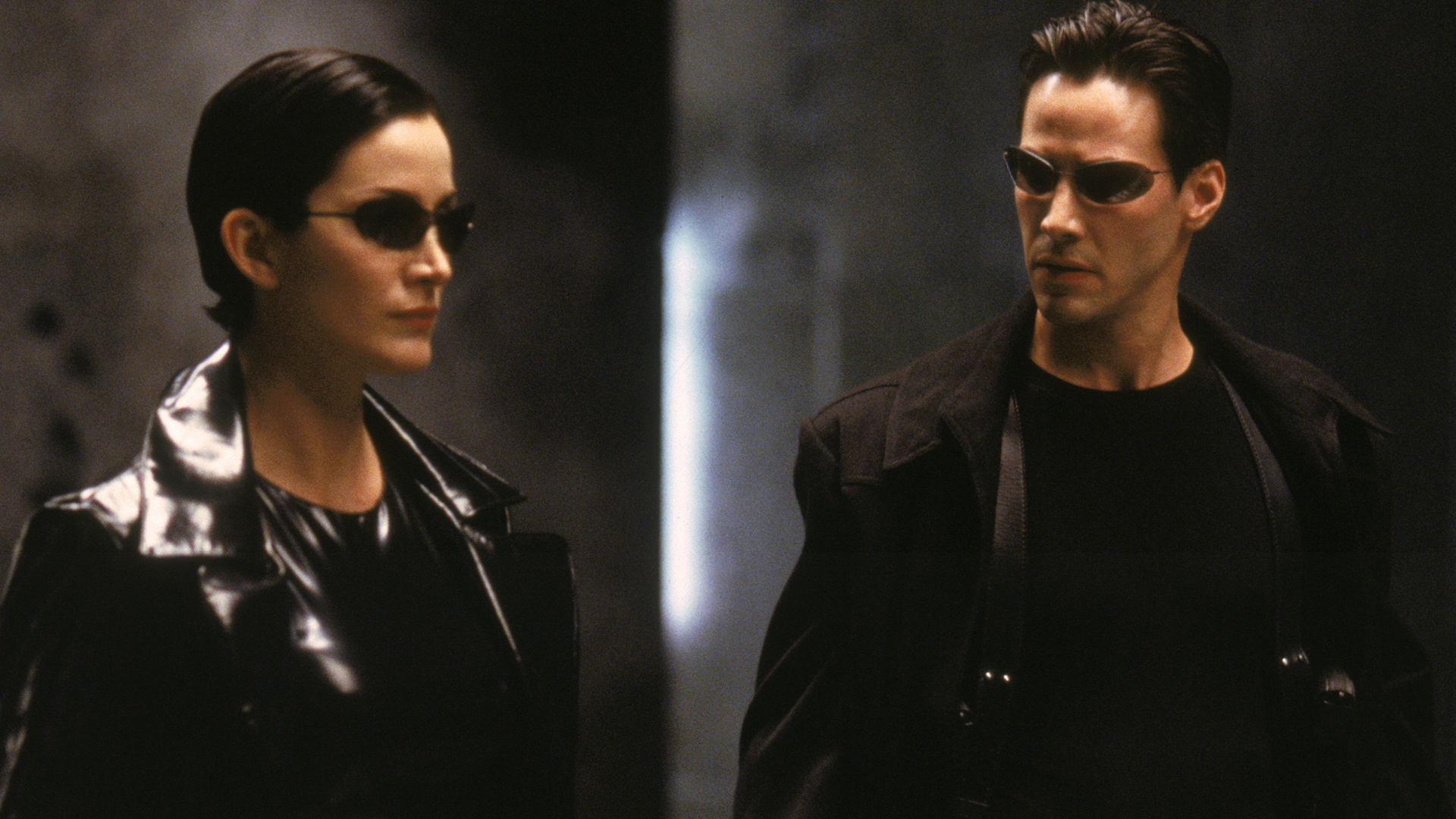
With a quarter century now having elapsed since we first had our minds blown by The Matrix in cinemas, the film has permeated popular culture—and as Dobbyn observes, it’s easy in hindsight to see how the story comes together onscreen. But, a bit like myself, he has a similar recollection of seeing the film for the first time: “I was like, ‘Where’s this going?’ you know… ‘What the hell’s happening here?’”
“From the moment Neo can’t open his mouth I thought, well, we’re right down the rabbit hole,” Dobbyn recalls. “So it was amazing. I think the scariest scene was the prawn going into the navel. That was the toughest scene to start with. And then it just grew from there. It was just fascinating, and it was allegorical. So much of the supposedly postmodern world is, you know, those things that kind of feel like they ring true. The fact that wool is pulled over our eyes and the world is that place—that the world is the Matrix—it’s just great. I just think it’s a perfect metaphor.”
In 1999 I was a Uni student spending too much time at 95bFM. I recall that Dobbyn had released The Islander the year before—a number one album in Aotearoa, with Beside You its sole single in ’99 —with the album Hopetown coming in 2000. Between the two studio albums, compilation Overnight Success was released, subtitled ‘The Definitive Dave Dobbyn Collection 1979–1999’ and going double platinum.
I encourage Dave to think back to what he was up to 25 years ago: “That was a wild time for me because in ‘98, Labour Day October ‘98, I remember it—I had this kind of conversion experience,” Dobbyn replies. “That’s right, I became a follower of Jesus on that day. And that was surreal. It was like something out of a movie.”
“The world was completely different to me after that point. So I was all ears when it came to anything that resembled a Christian myth. Yeah, it was a pretty dazzling time, actually. I felt like a kid in a toy shop for the first time, you know? I had so many questions. And I had this sort of existential crisis, if you like—any conversion experience, I suppose, is an existential crisis. And so yeah, it’s funny, you should mention that came out in ‘99. And that happened to me in 1998.”
“You were prepped!” I respond.
“I was primed for this movie,” says Dobbyn. “For sure.”
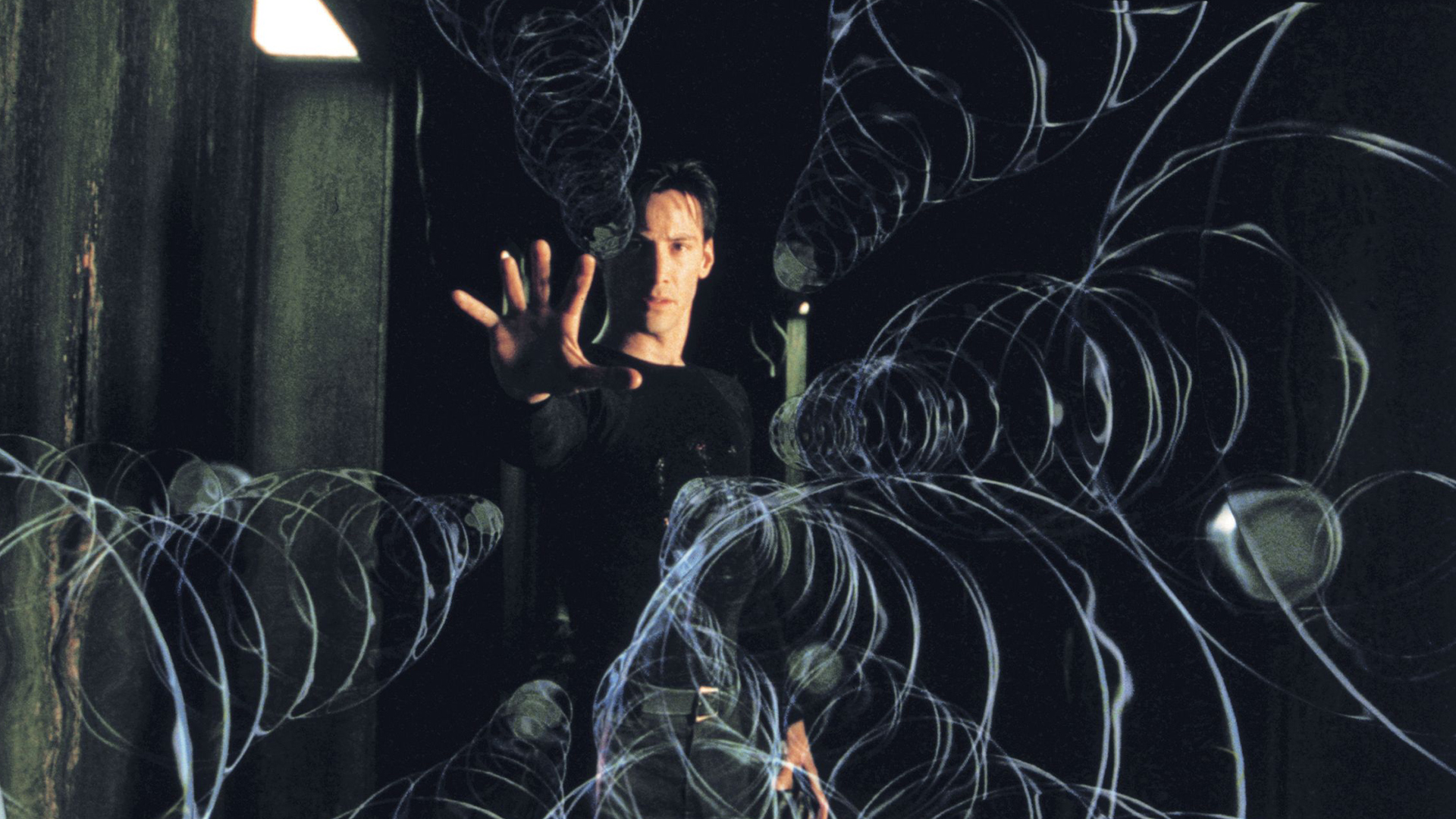
It’s interesting to think about how Dobbyn’s conversion made the already-impactful Matrix even more so. In Neo taking almost the whole movie to discover he’s “the one”, you see both classical storytelling and something that could resonate with Dobbyn’s own experience. “I was just enthralled, and still am,” he says. “I watched it again last night, just to sort of brush up a bit. I think it had a spiritual content that a lot of other movies lacked. Especially around that time, I think.”
“You kind of find yourself looking for parallels in real life. Everybody talks about it, you know: ‘we’re stuck in the Matrix’. So much of our lives is being stuck in the Matrix in a way. You know, in terms of being distracted, constantly distracted. The reality of most people is so mundane and so boring and so unconnected to anything larger than itself. So that was totally refreshing.”
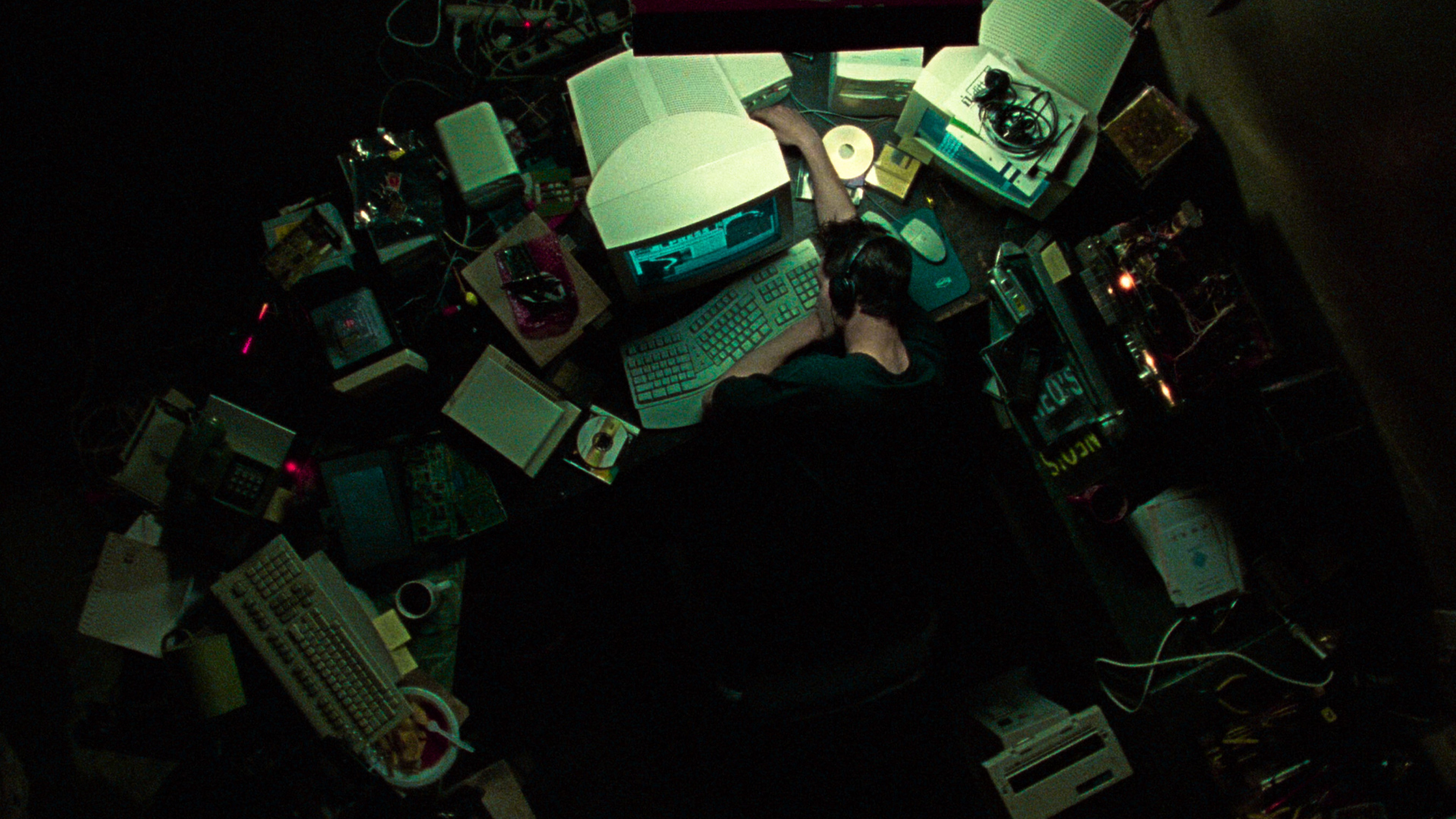
The Matrix is also an alchemy of repurposed styles and references, with the Wachowskis borrowing liberally from existing works—for the first time for many viewers. “All these things seemed to converge,” Dobbyn says. “That’s probably the first time I was really aware of anime. And then the fact is, it looks exactly like a graphic novel. From the opening frame of that cop with his torch, it’s so noir. And you’re just riveted to the story immediately.”
“There’s police after somebody, you drop right in it right from the word go, and it held that intrigue all the way through. So yeah, I thought it was breathtaking, really. And it still is, upon repeated viewings I just find it breathtaking.”
So, what was Sir Dave Dobbyn’s favourite scene last time he watched The Matrix, I ask.
“I think probably where Neo saves Morpheus—comes in with a big Gatling gun and wastes a few agents,” he replies. “He rescued Trinity and proved that he was The One right there. That was when everyone knew, the other characters going ‘He is The One’. That’s an amazing scene.”
Is that one scene Dobbyn looks forward to on a rewatch when he senses it coming up? “Yeah, for sure,” he confirms. “The early scenes I love too, you know—the revelation that he was a Duracell battery. Yeah, that’s just amazing, those fields of pods. I remember the dread I had when I first saw that. I was just stunned. You get that feeling of dread: ‘Oh, my God. Is that it? Where’s this going now?’”
Dobbyn sees a prophetic element to this onscreen future in which we’re completely subservient to machines. It’s a pretty specific destination for humanity, I suggest. “Yeah, you’re fucked, basically,” he laughs. “It pushed all the right buttons, you know, all the paranoid buttons and all the things you dread. Especially when he wakes up in the pod, that’s when it really hit the fan.”
Another source of amusement for both of us is that, because it’s filmed in Sydney, the Matrix is… Australia. “We lived there for 10 years, so I recognised a few things”, Dobbyn says of certain buildings or shots of the skyline. “There was that familiarity to it that seemed kind of alien. Everything seemed to fit that whole idea of the generic, for the film. The generic city, the generic crowds of people walking through them…”
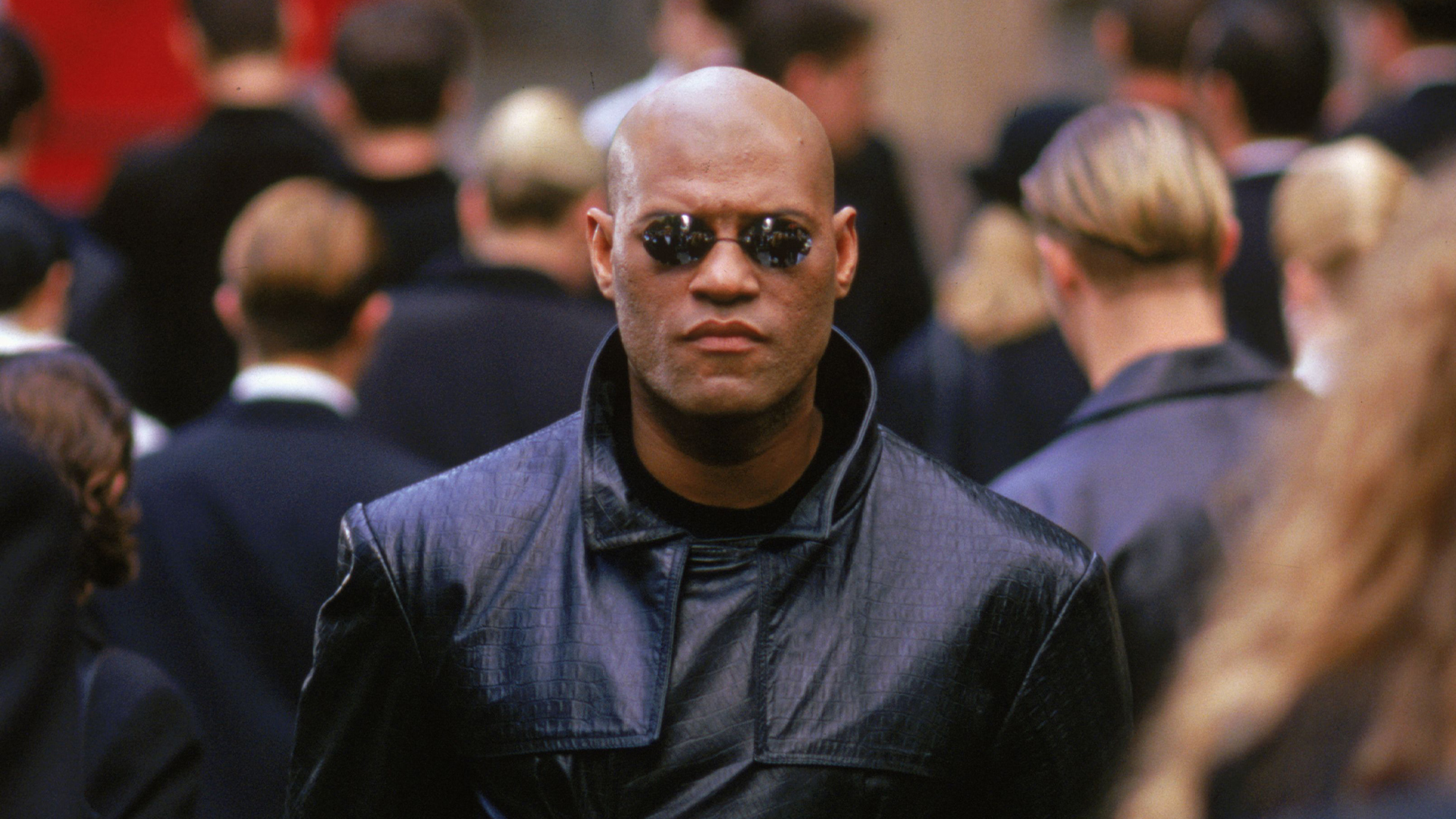
It’s a far cry from the leafy Grey Lynn setting this conversation had started in, when I first heard of Dobbyn’s love of the film. And, as it turns out, from where he likes to watch it. “I got the DVD as soon as possible,” he tells me. “And then I’ve got a bach up in Mangawhai. There’s not many permanent residents around where we are, so I could crank up the stereo as loud as I like. And then just watch it with some friends, and it always hit the spot.”
“It’s one of my favourite movies of all time, actually. And, you know, I’ve seen a few. But that really took the cake.”
This interview has been edited for length and clarity. Originally published by Flicks on July 9, 2024.





